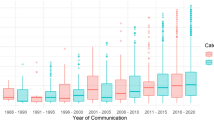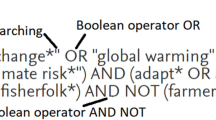Abstract
A systematic review (SR) is a type of review that uses a systematic method to provide a valid summary of existing literature addressing a clear and specific question. In clinical medicine (CM), the concept of SR is well recognized, especially after the introduction of evidence-based medicine; The SR of randomized clinical trials (RCTs) is considered the highest level of evidence on therapeutic effectiveness. Despite the popularity of the SRs and the increasing publication rate of SRs in CM and other healthcare literature, the concept has raised criticisms. Many of proper criticisms can be due to the deviation of some existing SRs from the original philosophy and well-established rationale behind the concept of SR. On the other hand, many criticisms are misconceptions about SRs which still exist even several decades after introducing the concept. This article presents a conceptual framework for clarifying the rationale behind SR in CM by providing the relevant concepts and their inter-relations, explaining how methodological standards of an SR and its rationale are connected, and discussing the rationale under the three-section: SR as a type of synthetic research, SR as a more informed and less biased review, and SR as an efficient scientific tool.

Similar content being viewed by others
References
Higgins JP, Green S. Cochrane handbook for systematic reviews. The Cochrane collaboration. 2008;5(0).
Hayward RS, Wilson MC, Tunis SR, Bass EB, Guyatt G. Users' guides to the medical literature. JAMA. 1995;274(7):570–4.
Ioannidis JP. The mass production of redundant, misleading, and conflicted systematic reviews and meta-analyses. Milbank Q. 2016;94(3):485–514.
Greenhalgh T, Thorne S, Malterud K. Time to challenge the spurious hierarchy of systematic over narrative reviews? Eur J Clin Invest. 2018;48(6).
Petticrew M, Roberts H. Systematic reviews in the social sciences: a practical guide: John Wiley & Sons 2008.
Petticrew M. Why certain systematic reviews reach uncertain conclusions. BMJ. 2003;326(7392):756–8.
Petticrew M. Systematic reviews from astronomy to zoology: myths and misconceptions. BMJ. 2001;322:98–101.
Haddaway NR, Bilotta GS. Systematic reviews: separating fact from fiction. Environ Int. 2016;92:578–84.
Sofaer N, Strech D. The need for systematic reviews of reasons. Bioethics. 2011;26(6):315–28.
Strech D, Sofaer N. How to write a systematic review of reasons. J Med Ethics. 2012;38(2):121–6.
Oliver S, Dickson K. Policy-relevant systematic reviews to strengthen health systems: models and mechanisms to support their production. Evid Policy. 2016;12(2):235–59.
Mullen PD, Ramírez G. The promise and pitfalls of systematic reviews. Annu Rev Public Health. 2006;27:81–102.
Morrison J. The challenges of systematic reviews of educational research. BMJ. 2005;331(7513):391.
Mulrow CD. Rationale for systematic reviews. BMJ. 1994;309:597–9.
Daley BJ, Durning SJ, Torre DM. Using concept maps to create meaningful learning in medical education. MedEdPublish. 2016 10;5.
Me D. The Joanna Briggs institute: its contribution to evidence-based practice. Clin Nurse Spec. 2005;19(4):184–6.
Leeuw FL. Institutionalization of Second-Order Evidence-Producing Organizations. In The Evidence Book Routledge 2017 (pp. 35–58).
Cook DA, West CP. Conducting systematic reviews in medical education: a stepwise approach. Med Educ. 2012;46(10):943–52.
Tsafnat G, Dunn A, Glasziou P, Coiera E. The automation of systematic reviews. (2013): f139.
Densen P. Challenges and opportunities facing medical education. Trans Am Clin Climatol Assoc. 2011;122:48.
Ely JW, Osheroff JA, Ebell MH, Bergus GR, Levy BT, Chambliss ML, et al. Analysis of questions asked by family doctors regarding patient care. BMJ. 1999;319(7206):358–61.
Cook DJ, Mulrow CD, Haynes RB. Systematic reviews: synthesis of best evidence for clinical decisions. Ann Intern Med. 1997;126(5):376–80.
Pae CU. Why systematic review rather than narrative review? Psychiatry Investig. 2015;12(3):417–9.
Cipriani A, Geddes J. Comparison of systematic and narrative reviews: the example of the atypical antipsychotics. Epidemiol Psychiatr Sci. 2003;12(3):146–53.
Grant MJ, Booth A. A typology of reviews: an analysis of 14 review types and associated methodologies. Health Inf Libr J. 2009;26:91–108.
Sugimoto CR, Larivière V. Measuring research: what everyone needs to know. Oxford University Press; 2018.
Abramo G. Revisiting the scientometric conceptualization of impact and its measurement. J Inf Secur. 2018;12(3):590–7.
Ioannidis JP. Meta-research: why research on research matters. PLoS Biol. 2018;16(3):e2005468.
Moattar H, Moosapour H, Soltani A, Larijani B. The effect of Chloroquine on pro-inflammatory cytokines levels in graves‘ disease: historical cohort from a pilot randomized controlled trial. Pharmacol & Pharm. 2013;4(4):392–7.
Chin YH, Ng CH, Lee MH, Koh JW, Kiew J, Yang SP, et al. Prevalence of thyroid eye disease in graves’ disease: a meta-analysis and systematic review. Clin Endocrinol. 2020;93(4):363–74.
Muñoz-Velandia OM, Fernández-Ávila DG, Patino-Hernandez D, Gómez AM. Metrics of activity in social networks are correlated with traditional metrics of scientific impact in endocrinology journals. Diabetes Metab Syndr. 2019;13(4):2437–40.
Polit DF, Beck CT. Generalization in quantitative and qualitative research: myths and strategies. Int J Nurs Stud. 2010;47(11):1451–8.
Nasser M, Van Weel C, Van Binsbergen JJ, van de Laar FA. Generalizability of systematic reviews of the effectiveness of health care interventions to primary health care: concepts, methods, and future research. Fam Pract. 2012;29(suppl_1):i94–103.
Johnston BC, Supina AL, Vohra S. Probiotics for pediatric antibiotic-associated diarrhea: a meta-analysis of randomized placebo-controlled trials. CMAJ. 2006;175(4):377–83.
Lau J, Antman EM, Jimenez-Silva J, Kupelnick B, Mosteller F, Chalmers TC. Cumulative meta-analysis of therapeutic trials for myocardial infarction. N Engl J Med. 1992;327(4):248–54.
Belur J, Tompson L, Thornton A, Simon M. Interrater reliability in systematic review methodology: exploring variation in coder decision-making. Sociol Methods Res 2018:0049124118799372.
PLoS Medicine Editors. Best practice in systematic reviews: the importance of protocols and registration. PLoS Med. 2011;8(2):e1001009.
Straus S, Moher D. Registering systematic reviews. CMAJ. 2010;182(1):13–4.
Ge L, Tian JH, Li YN, Pan JX, Li G, Wei D, et al. Association between prospective registration and overall reporting and methodological quality of systematic reviews: a meta-epidemiological study. J Clin Epidemiol. 2018;93:45–55.
Booth A, Clarke M, Ghersi D, Moher D, Petticrew M, Stewart L. Establishing a minimum dataset for prospective registration of systematic reviews: an international consultation. PLoS One. 2011;6(11):e27319.
Booth A, Clarke M, Ghersi D, Moher D, Petticrew M, Stewart L. An international registry of systematic-review protocols. Lancet. 2011 Jan 5;377(9760).
Beyer F, Wright K. Comprehensive searching for systematic reviews: a comparison of database performance. York: Centre for Reviews and Dissemination, University of York. 2011.
Moat KA, Lavis JN, Wilson MG, Røttingen JA, Bärnighausen T. Twelve myths about systematic reviews for health system policymaking rebutted. J Health Serv Res Policy. 2013;18(1):44–50.
Acknowledgments
This article is a part of Dr. Hamideh Moosapour’s Ph.D. thesis entitled “Theoretical Challenges in Conceptualization of Evidence-Based Islamic Biomedical Ethics: A Comparative Study in Philosophy of Medicine and Medical Ethics”. The project was funded by Evidence Based Medicine Research Center, Endocrinology and Metabolism Clinical Sciences Institute, Tehran University of Medical Sciences.
Author information
Authors and Affiliations
Contributions
HM had substantial contributions to concept and design, drafting, writing, and revising the manuscript critically for important intellectual content and approving the final version to be published. FS had substantial contributions to drafting, writing, and revising the manuscript and approving the final version to be published. MA had contributions to drafting the manuscript and approving the final version to be published. AS had contributions to concept and design, revising the manuscript critically for important intellectual content, and approving the final version to be published. BL had contributions to concept and design, revising the manuscript critically for important intellectual content, and approving the final version to be published.
Corresponding authors
Ethics declarations
Conflict of interest
The authors declared that they had no conflict of interest.
Additional information
Publisher’s note
Springer Nature remains neutral with regard to jurisdictional claims in published maps and institutional affiliations.
Rights and permissions
About this article
Cite this article
Moosapour, H., Saeidifard, F., Aalaa, M. et al. The rationale behind systematic reviews in clinical medicine: a conceptual framework. J Diabetes Metab Disord 20, 919–929 (2021). https://doi.org/10.1007/s40200-021-00773-8
Received:
Accepted:
Published:
Issue Date:
DOI: https://doi.org/10.1007/s40200-021-00773-8




